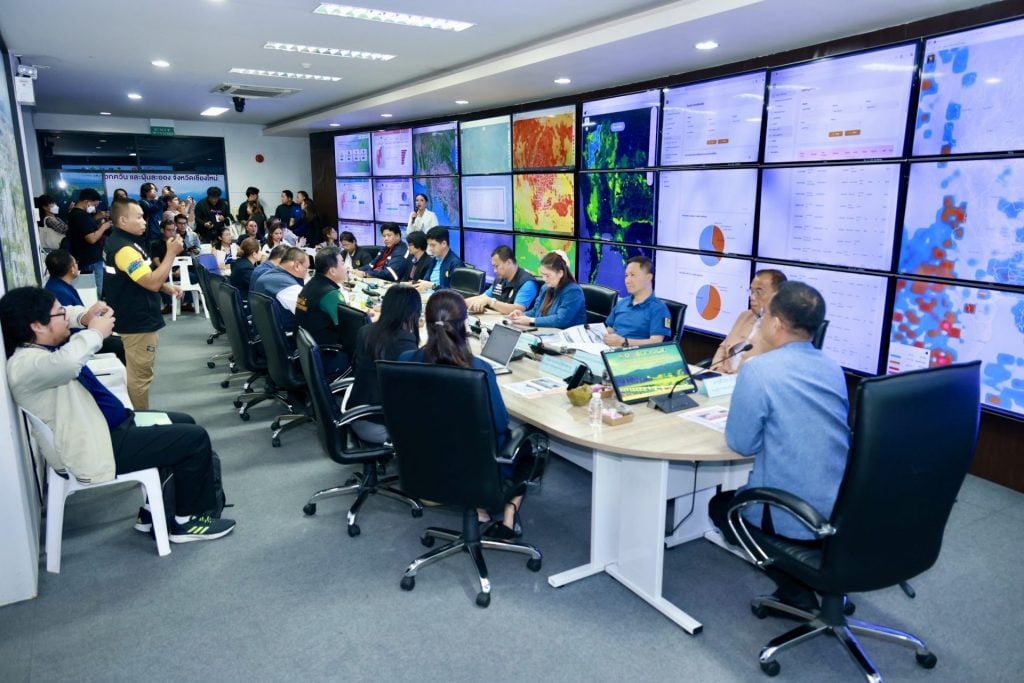9 – 10 October 2025, Chiang Mai – The Big Data Institute (Public Organization) or BDI, under the Ministry of Digital Economy and Society, is launching “Envi Link”, an environmental data platform that uses Big Data technology to connect and analyze data from over 30 agencies nationwide, totaling over 200 datasets. The platform is designed to support systematic management of the air pollution problem (PM 2.5). Chiang Mai Province has been selected as a pilot area for implementing “data-driven environmental management” to improve air quality, enhance quality of life, and promote the long-term sustainability of the city.
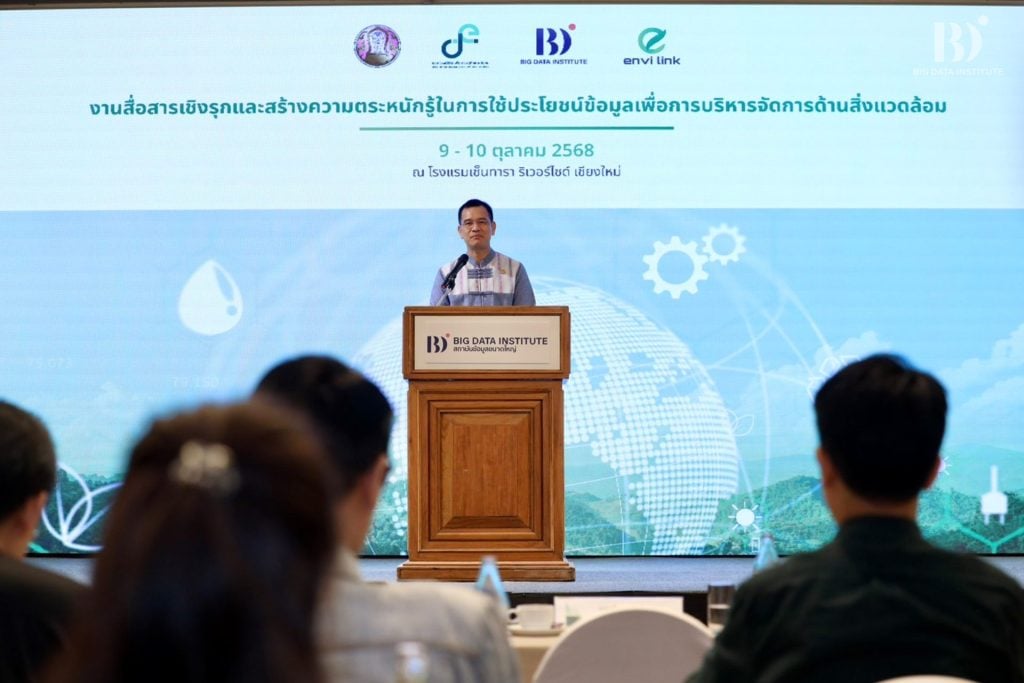
Mr. Sivakorn Buapong, Deputy Governor of Chiang Mai Province, stated that Chiang Mai has faced continuous challenges in terms of air pollution due to PM 2.5 and other air pollutants for many years. The introduction of an integrated data system such as “Envi Link” marks a game-changing step for local environmental management. This is because it provides local authorities with more in-depth and accurate information to assess situations, as well as to plan and implement measures promptly. In particular, the use of data dashboards enables executives to monitor near real-time conditions in each area, analyze trends, and systematically evaluate performance based on data-driven decisions.
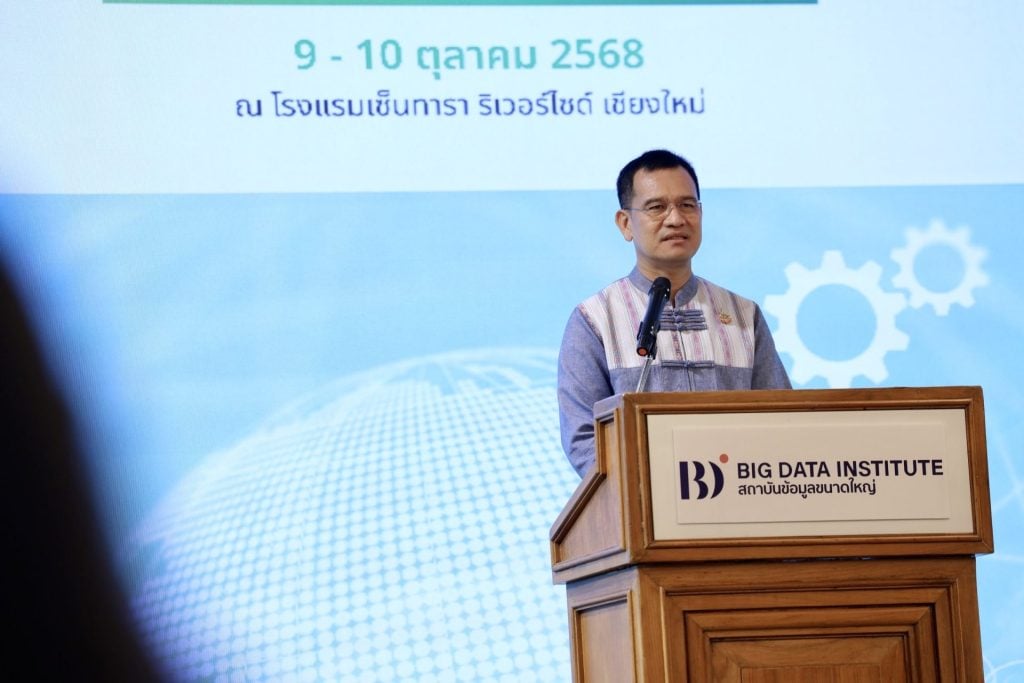
The Deputy Governor added that the cooperation between Chiang Mai and BDI is not only about using data technology to address the smog problem, but also serves as a model for a “clean air city”, where the public, private, and educational sectors can access and use the same data to monitor conditions, plan jointly, and prevent problems through participatory approaches. This represents an advancement to proactive environmental management driven by real data and cooperation across all sectors.
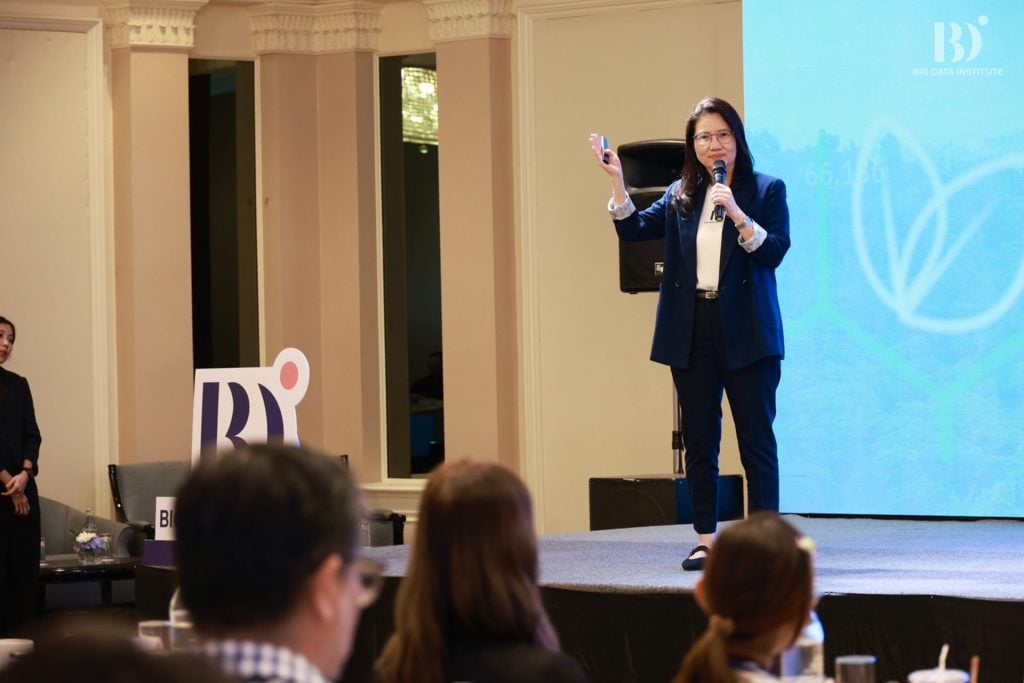
Prof. Dr. Tiranee Achalakul, President of the Big Data Institute (Public Organization) or BDI, states that BDI is committed to harnessing the power of Big Data and Artificial Intelligence (AI) as key mechanisms to drive economic and social developments across all dimensions, including environmental management, which forms the foundation of the country’s quality of life and sustainability. The integration of more than 200 datasets through the “Envi Link” platform is crucial step towards creating a centralized information system that connects public and government agencies, researchers, businesses, and communities, to support accurate and targeted policy decisions.
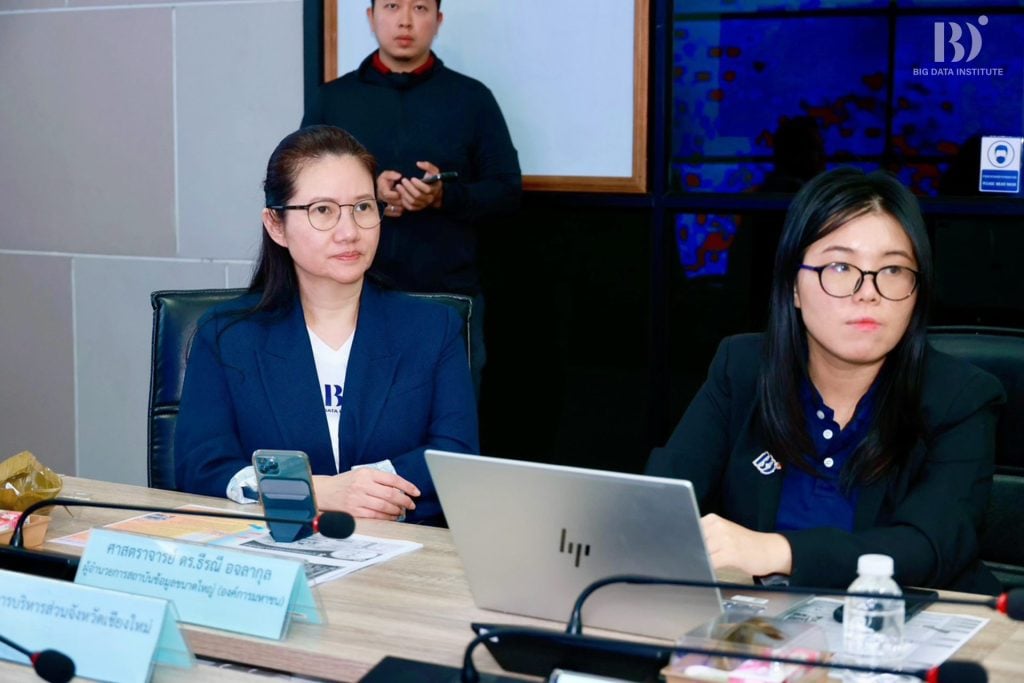
The BDI President added that “Envi Link” is an integrated data platform for sustainable environmental management, consolidating information from multiple dimensions, such as PM 2.5 concentrations, hotspot locations, burned areas, burn permit requests from the decision-support system for open-burning management (FireD), and the number of patients affected by air pollution. It also integrates air quality sensor data from various agencies, allowing administrators and local authorities to access updated and inter-connected information in near real time, enabling accurate and timely problem management. Furthermore, “Envi Link” has been developed into a central database platform to support the nationwide management of PM 2.5 challenges, in line with the recommendations of the working group on developing a central database platform to support PM 2.5 reduction measures.
In the near future, BDI plans to collaborate with local researchers to expand the use of the “Envi Link” platform from Chiang Mai to eight provinces in the upper northern region. This initiative aims to establish a regionally connected environmental information system, supporting spatial policymaking, wildfire management, and sustainable PM 2.5 reduction.
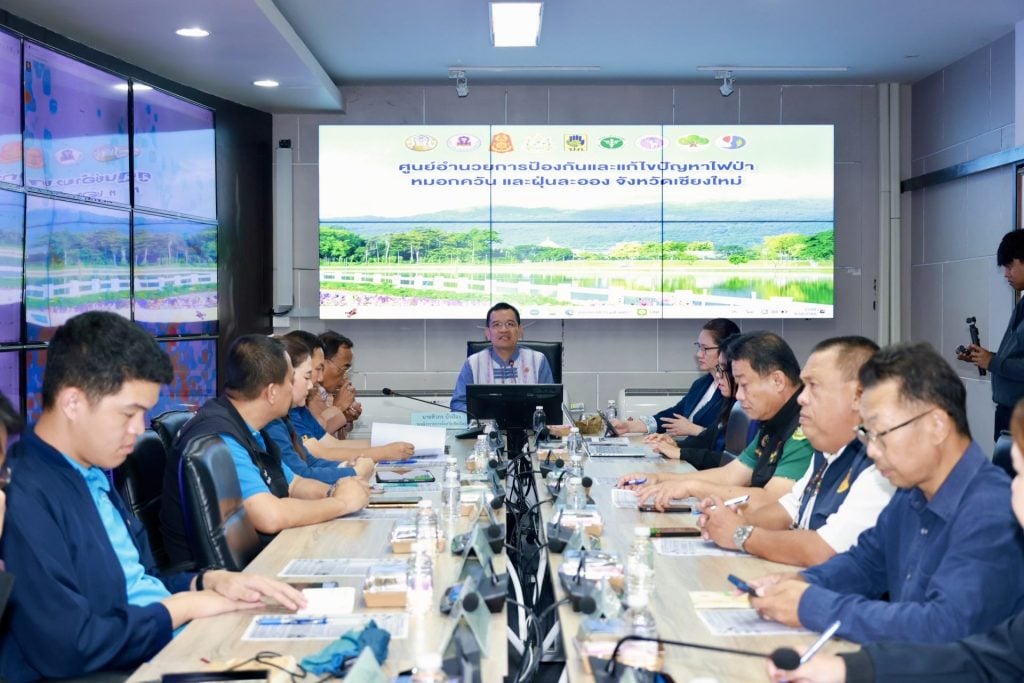
The National Research Council of Thailand (NRCT) has funded a project to develop a data catalog system and a prototype for integrating PM 2.5 data through the Science, Research and Innovation Fund (SRIF). Leading the effort is a consortium of key partners: Big Data Institute (Public Organization) Chiang Mai University (CMU), Highland Research and Development Institute (Public Organization) (HRDI), and Geo-Informatics and Space Technology Development Agency (Public Organization) (GISTDA), and Thailand Institute of Scientific and Technological Research (TISTR). Their goal is to develop a centralized environmental data catalog system that can systematically collect, store, and analyze data to promote effective environmental policies and sustainable urban development.
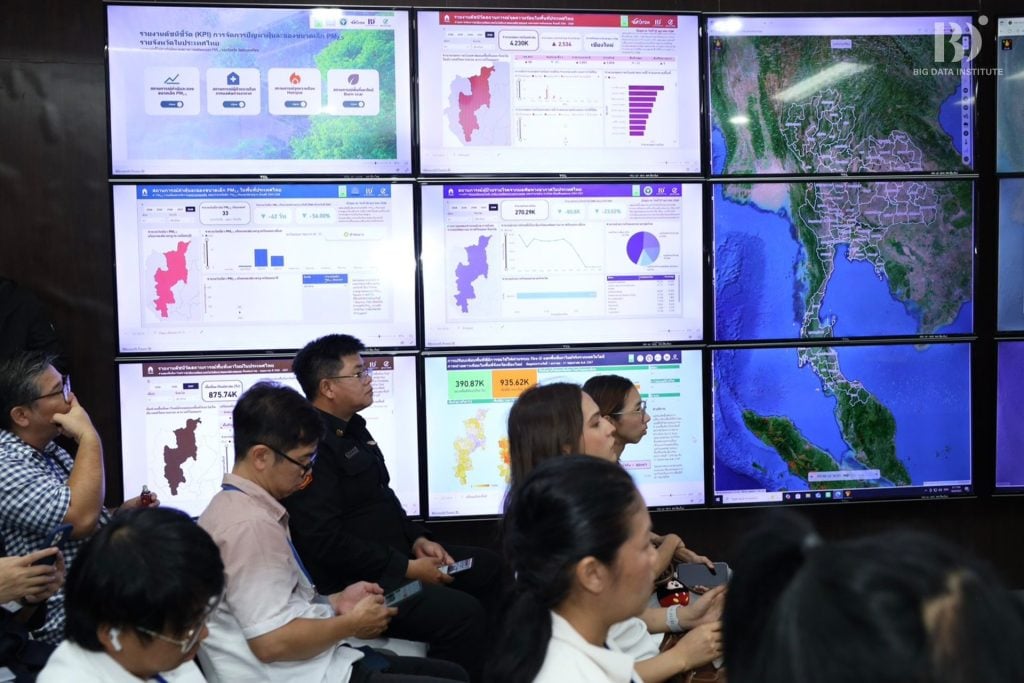
The “Envi Link” platform also features more than 15 analytical dashboards. Key examples include:
- A near real-time air quality dashboard that monitors integrated data from multiple sources including RGUARD, DustBoy, Air4Thai, DPM Alert and Check Foon enabling citizens to respond quickly to PM 2.5 conditions and gain a better understanding of spatial data.
- A nationwide PM 2.5 management dashboard that monitors hotspots, burned areas, days with PM 2.5 concentrations exceeding safety standards, and the number of air pollution-related patients, to evaluate government measures.
- A burn permit analysis dashboard that compares land areas requested for burning through the Fire-D system against actual burned areas derived from satellite data, allowing analysis of compliance over time.
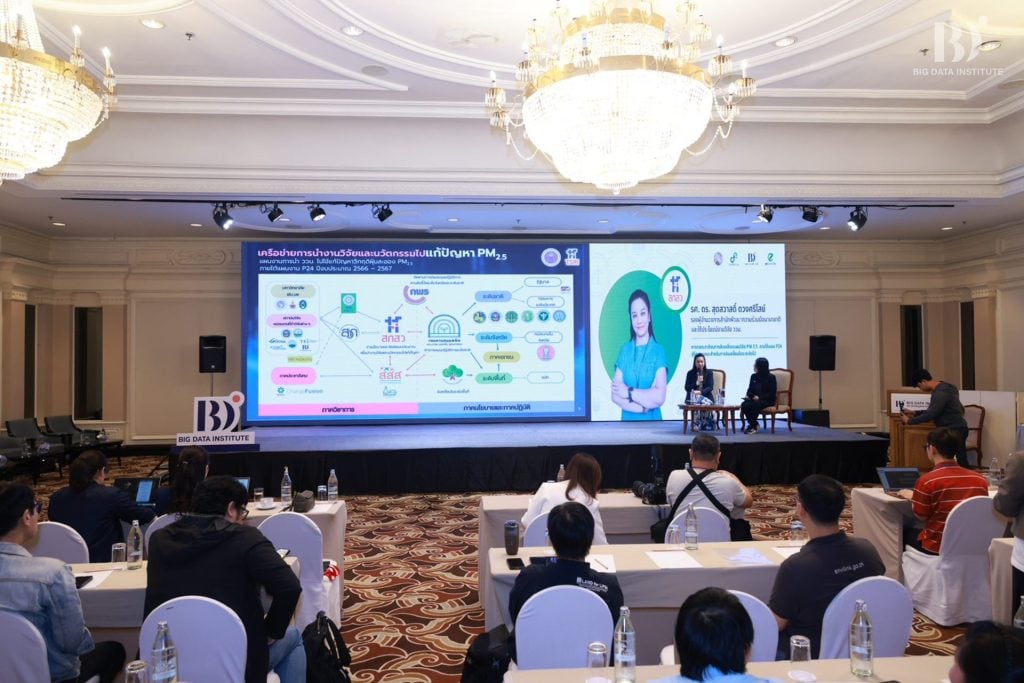
In addition, BDI plans to further analyze data from “Envi Link” platform and its key partners to support new research and policy initiatives. Key projects will use integrated geospatial data to track potential burn areas by crop type and to identify high-potential areas for vegetation modification. These analyses will help create policies that reduce burning and increase economic value, and lead to sustainable solutions.

“The operation in Chiang Mai Province is more than just the start of integrating environmental data, but also a key step in advancing ‘Smart Environment’ under the government’s Smart City policy. Our ultimate goal is to make data an important tool to design policies, manage natural resources, and create sustainable quality of life for all citizens.” Prof. Dr. Tiranee concluded.

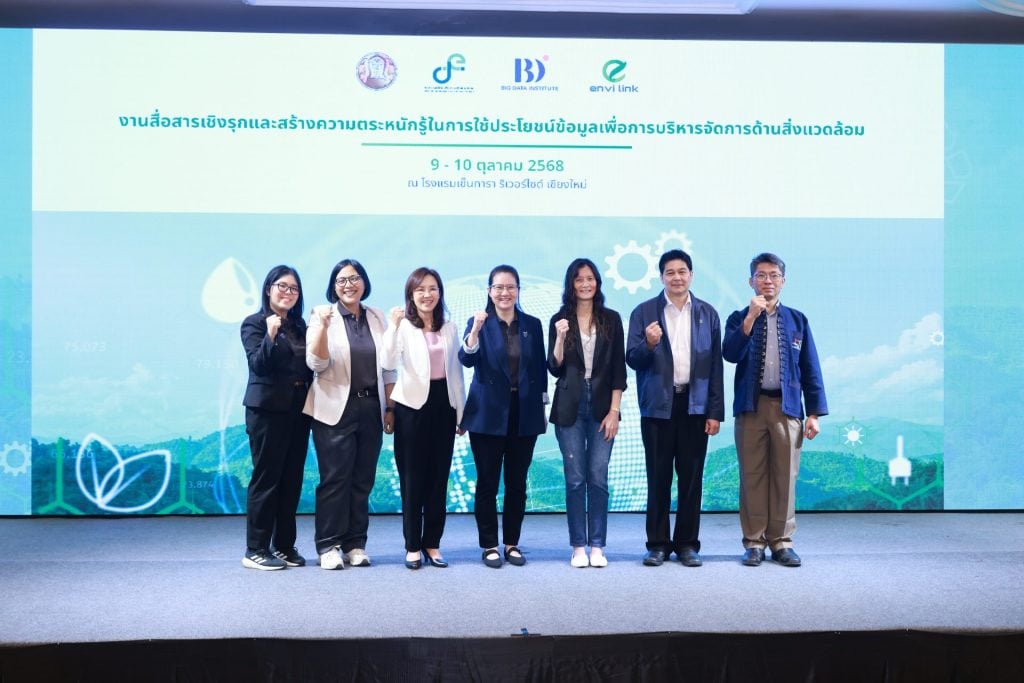
Public Relations and Communication Specialist
Big Data Institute (Public Organization), BDI
- Narisara Boonsrihttps://bdi.or.th/en/author/narisara-bo/
- Narisara Boonsrihttps://bdi.or.th/en/author/narisara-bo/
- Narisara Boonsrihttps://bdi.or.th/en/author/narisara-bo/
- Narisara Boonsrihttps://bdi.or.th/en/author/narisara-bo/


